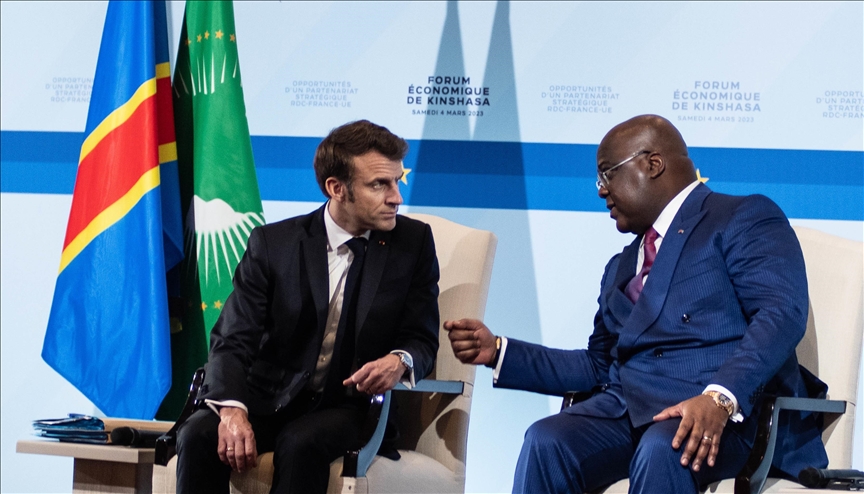- Details
- East Africa
- 856
French President Emmanuel Macron and President of Democratic Republic of Congo Felix Antoine Tshisekedi Tshilombo attend Kinshasa Economic Forum in Kinshasa, Democratic Republic of the Congo on March 04, 2023. ( Samy Ntumba Shambuyi - Anadolu Agency )
ANKARA
French President Emmanuel Macron lost his cool during a joint press conference with his counterpart from the Democratic Republic of Congo Felix when a reporter questioned him whether France will impose sanctions on Rwanda for its alleged military support to M23 rebels.
"Since 1994, and it is not France's fault, I'm sorry to say it in such blunt terms, you have not been able to restore the sovereignty, neither military, nor security, nor administrative, of your country," Macron said in Kinshasa on Saturday.
This came after the journalist also reminded Macron of France’s "relevant role” in the 1994 Rwandan genocides.
Tshisekedi also pressed his French counterpart for sanctions against Rwanda, saying he remained “doubtful about the good faith of those who attacked us.”
“There was no reason, I recall, that justified this aggression. Except for economic reasons specific to Rwanda, the instigator of this aggression. Now, the question is to know: Can Rwanda do without this systematic plundering of the DRC, which dates back some twenty years now? And if this is not the case, it is there that I will verify the words and commitments of President Macron, in relation to the sanctions to be taken against Rwanda," he said.
M23 rebels have taken over the province of North Kivu in the DR Congo, causing deadly violence and forcing people to flee on a daily basis.
The Congolese government accuses Rwanda of supporting the M23, a claim Kigali denies.
Rwanda has instead accused the Congolese army of collusion with Rwandan rebels of the Democratic Forces for the Liberation of Rwanda, whose elements are accused of taking part in the 1994 genocide against the Tutsi ethnic group in Rwanda. Anadolu Agency






